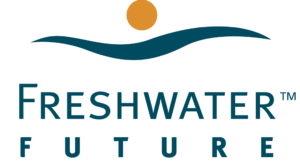In this era of uncertainty, it is easy to get overwhelmed or paralyzed in the work to protect our planet. However, under the nose of rapidly changing national headlines, environmentalists, local coalitions, and Indigenous communities across the country are making progress on preserving our nation’s water and natural resources.
From investing in clean water infrastructure to rejecting privatization and securing Indigenous water rights, the first few months of 2025 have shown that the fight for clean and accessible water is not just alive, but is being won.
Listed below are the powerful wins you may have missed!
The Navajo Nation Secures Historic Water Rights Deal in Settlement
In January 2025, the Navajo Nation secured a landmark victory as a state district court finalized the Navajo-Utah Water Rights Settlement confirming the tribe’s rights to 81,500 acre-feet per year of water from the Colorado River. The win also helps to deliver over $210 million in funding for water infrastructure and helps to affirm the sovereignty, human dignity, and right to safe and reliable water long-deserved by the tribe. President Buu Nygren of the Navajo Nation called this win a “historic achievement,” as it helps to pave the way for future water justice cases in the Colorado River Basin.
New Mexico Protects Vulnerable Streams After Federal Government Rollbacks
The New Mexico recently passed a law to restore protections to waterways that lost their coverage under recent federal government cutbacks to the Clean Water Act. The legislation created a state-led permitting program to protect the 90-plus percent of the state’s streams and wetlands that are no longer covered under federal law. The message of advocates in New Mexico was simple. If the federal government will not protect our water, “we will.”
New Jersey Community Votes Against Privatization
In Gloucester Township, New Jersey, voters rejected a proposal to privatize their water and sewer system on election day this past year. This particular win was monumental as an over $1 million corporate campaign pushed the water and sewer system sale. However, 81 percent of residents voted against the proposal to sell their public sewer utility to New Jersey American Water. The grassroots coalition against the sale included residents, union workers, and even Girl Scout troops that mobilized to inform their fellow neighbors and rally support. This community made it clear that water is a public good and not a commodity for profit.
An Alabama Coalition Cleans up Pollution and Conserves River Land
For decades an abandoned coal mine dubbed ‘Maxine Mine’ leached acid runoff and waste into the Black Warrior River, devastating the water quality and natural habitat. Once known as a lost cause, the work to get the river cleaned up has finally begun in 2025 due to a consent decree won by the Southern Environmental Law Center and the Black Warrior Riverkeeper. The decree passed in 2022 required the mining company to clean up the site and stop the ongoing pollution and also allowed for the permanent protection of over 450 acres of riverfront land through a partnership with the Freshwater Land Trust. A battle that began in 2016 is finally coming to a close and demonstrates that long-term environmental justice battles can be won.
A Huge Water Deal for Arizona’s Tribal Nations
The latest water win took place in March as a broad coalition of Indigenous nations and local political leaders introduced the Northeastern Arizona Indian Water Rights Settlement Act of 2025. Characterized as the largest tribal water rights settlement in U.S. history, the agreement would resolve decades-long fights by securing supplies of 56,000 acre-feet of Colorado River water for the Hopi Tribe, Navajo Nation, and South Paiute Tribe. Additionally, it authorizes over $5 billion to build drinking water infrastructure needed to deliver clean water to tribal homes in the Colorado River Basin. While Congressional approval is still needed, this legislation demonstrates a vision of inter-tribal cooperation and collective power in water rights policy.
It is evident that there is meaningful progress being made on water issues across the country that is being driven from the ground up. Tribal nations are asserting their rights to water after generations of denial, states are finding ways to safeguard their waterways when federal policy falters, and local communities are standing up to powerful interest groups to keep their water clean and affordable. Environmental nonprofits are winning long-fought battles that translate into cleaner habitats and safer waters. Each of these victories required years of organizing, partnership, and advocacy. They were not frivolous concerns, and what they show is that even amid national uncertainty, the fight for water justice and sustainability continues to gain ground. The work ahead of us is still vast, but the first few months of this year have shown us that people power runs deep.








